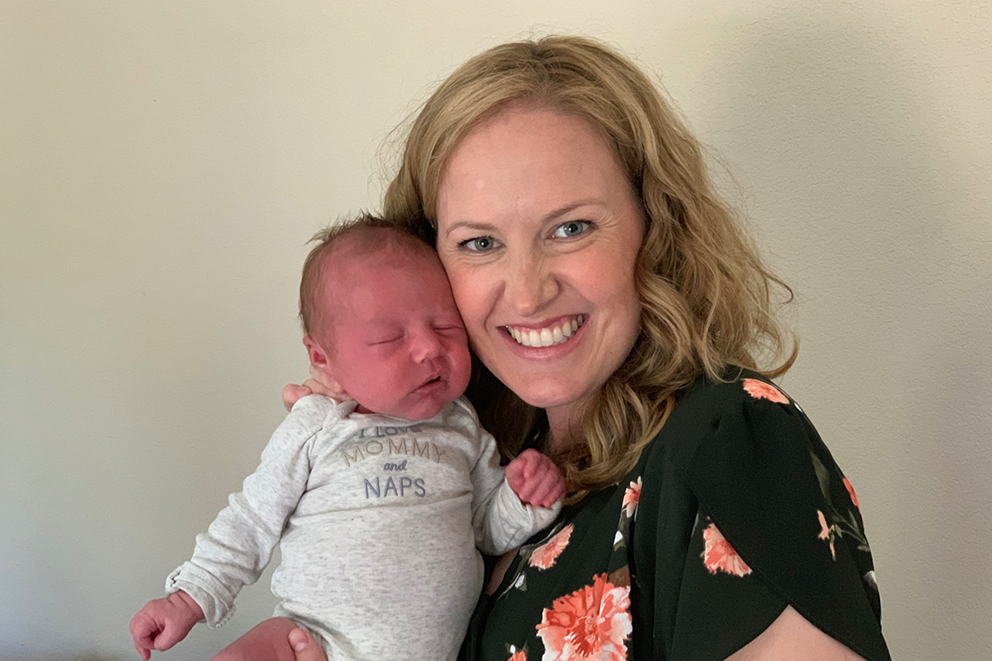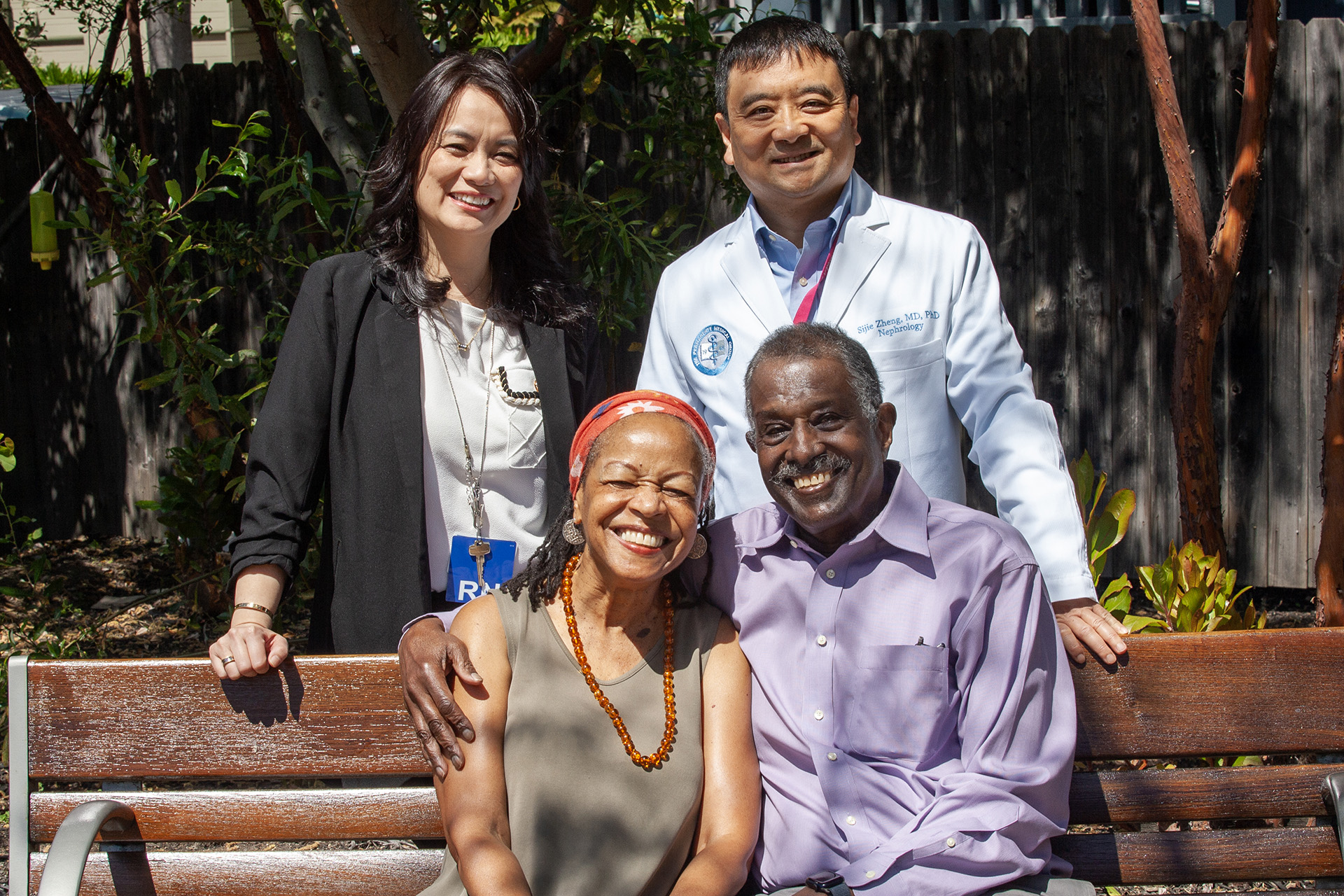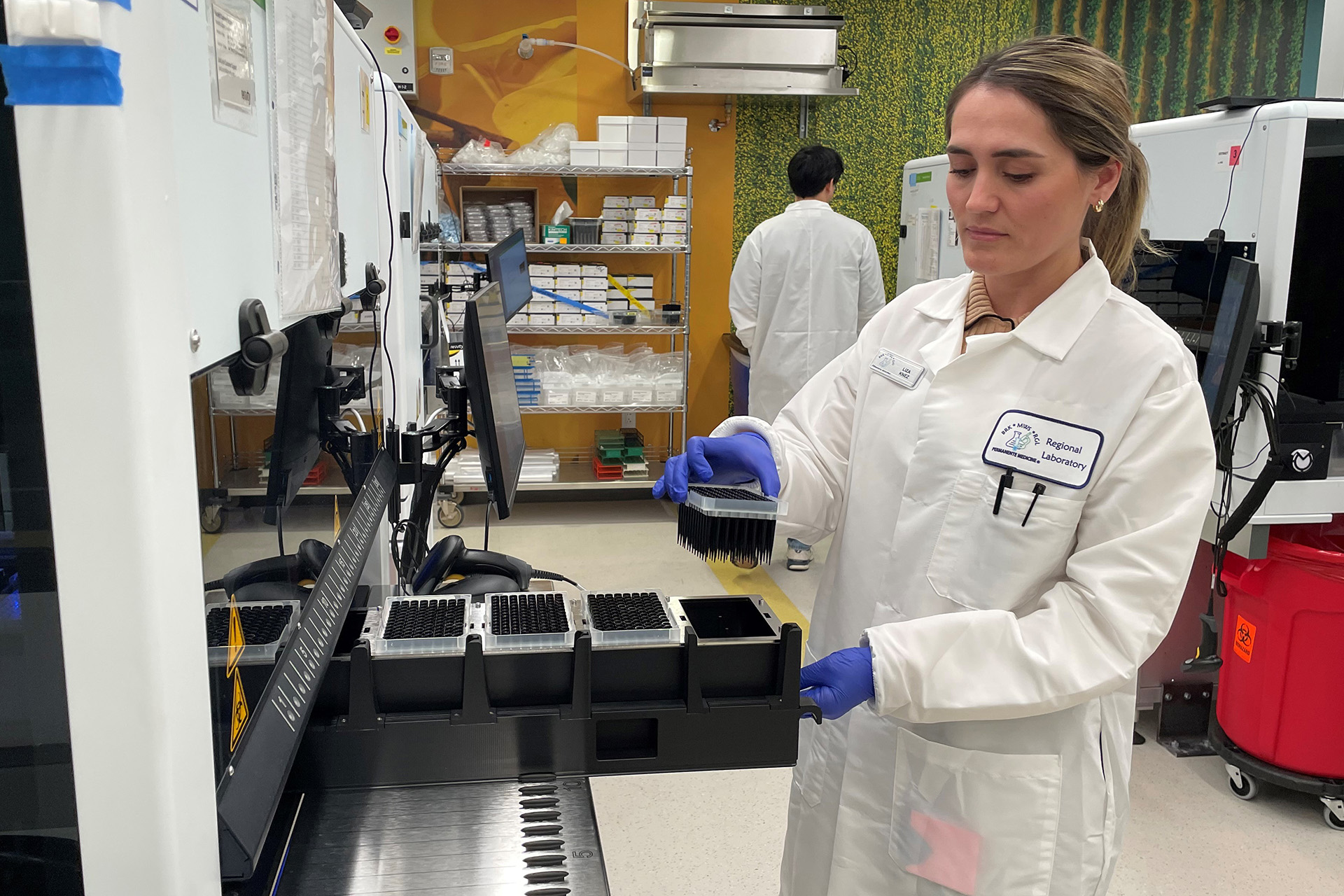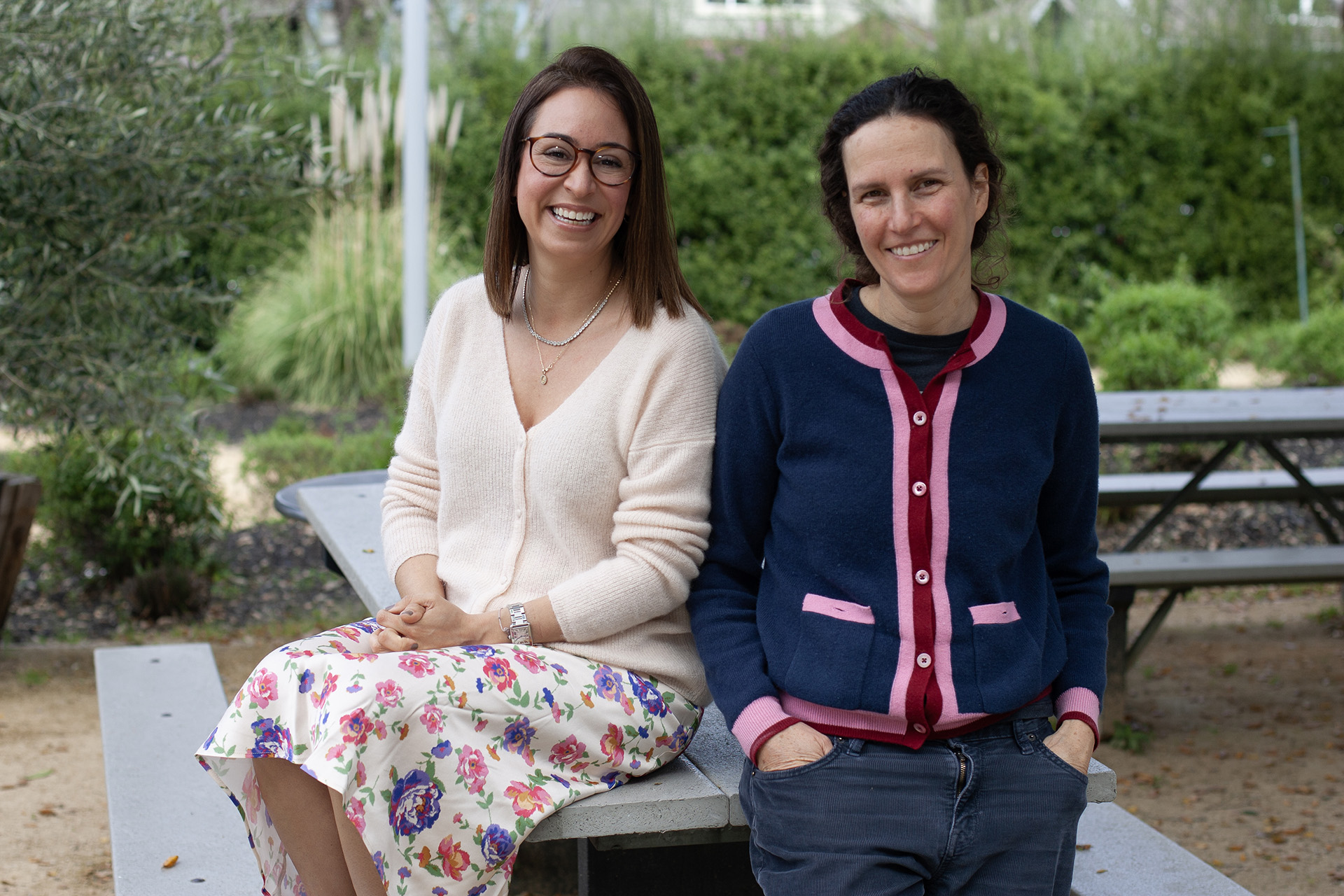Eating and getting moving sooner after a cesarean section can improve recovery for new moms. Pictured, Kaiser Permanente nurse Vanessa Bell with her newborn.
Vanessa Bell, 34, a Labor and Delivery nurse at the Kaiser Permanente Santa Clara Medical Center, always knew that she would need a cesarean section due to a medical condition, even before she got pregnant.
Back in 2015, she recalls, “My doctors told me that I’d have a high-risk pregnancy, and to prepare for a C-section.”
When she got pregnant about a year later, her water broke early, at almost 34 weeks. Not only was the surgery in her future, but now likely a stay at the neonatal intensive care unit (NICU) for her baby.
But Bell knew that Kaiser Permanente had implemented the Enhanced Recovery After Surgery (ERAS) program in all 21 Kaiser Permanente Northern California hospitals, a regimen that, as a nurse, she helped countless other women use after the surgery. And now it was her turn to benefit from it.
Less Medication, More Movement
ERAS includes innovations such as allowing a carbohydrate drink before surgery (rather than the traditional fast); pain management that reduces opioids in favor of local anesthetics and acetaminophen; getting patients up and walking soon after surgery; and educating patients about what to expect in recovery.
A Kaiser Permanente study published in Obstetrics & Gynecology in August found that, through the ERAS program, taking less pain medication following a C-section, along with moving around sooner after the surgery, can allow women to recover more quickly and care for their newborns.
“We found our new moms are more alert and engaged in the recovery process and in breastfeeding,” said study co-author Kimberly Lee, MD, an ob-gyn at the Kaiser Permanente Santa Clara Medical Center. “Both babies and mothers can decrease exposure to opioids while hospitalized.”
The study compared 4,689 women who underwent elective C-section deliveries at all Kaiser Permanente Northern California hospitals in 2013, a year before the ERAS program began, with 4,624 women who delivered afterward.
The significant finding was that women could decrease opioids yet not experience greater pain, said lead author Monique Hedderson, PhD, a research scientist with the Kaiser Permanente Division of Research.
In the study, opioid exposure was nearly cut in half: Patients walked 2.7 hours sooner and ate 11 hours sooner after the surgery.
“This study provides evidence we can successfully implement ERAS with patients undergoing cesarean deliveries, and that hasn’t been shown before,” Hedderson said.
Up and Moving
In addition to being encouraged to eat, and get up and moving after surgery, Bell’s Labor and Delivery nurses reminded her to take acetaminophen before she had to make her NICU journey, and to take a wheelchair with her, so she wouldn’t overexert herself.
“They knew I had to get up and go to the NICU, and the ERAS program helped me do that even quicker, without relying too much on opioids, which, even after one dose, left me feeling awful,” Bell recalled.
“I personally benefited from this program in one of the hardest moments of life. Not only was I able to recover well from a major surgery, but I could also be there physically for my daughter.”





This Post Has 3 Comments
Getting to have the apple juice before surgery made my recovery much better. Also not having morphine (like I did after my twins) let me be much more present on my babies first day. I was able to eat and nurse her in recovery. I was eager to walk after my C-section but I may have overexerted myself walking the hall the first evening and I think it lead to some neck spasms. Having the option of wheeling back to the room would have been good.
This article hit home for me. I also had an emergency C-section at 31 weeks and my sweet baby boy was in the NICU. I was very blessed with caring nurses and doctors who encouraged me to get up and start walking. When family and friends visited me at the hospital, they were shocked at how fast I was already walking. Not only were the Mother/Baby Unit nurses amazing, but they were in great communication with the NICU nurses and made sure I was ok. I really felt like we were all one team. Thank you for bringing awareness and education regarding the health of mothers after c-section!
I agree with this 100%. I was rushed into emergency C-Section on 06/11/19 … and the following day my nurse made sure I was up and walking and, of course, not overdoing it. My daughter was in the NICU but my recovery process was amazing, all I requested was Tylenol as my pain was not severe after surgery. Being a Kaiser Permanente employee and Kaiser Permanente patient, I just have to say thank you for making sure our nurses are on top of this because thanks to their diligent care after my C-Section I was able to ambulate daily with minimal pain to the NICU for a month to see my preemie, which allowed me to be with her.